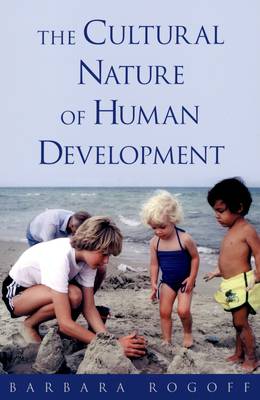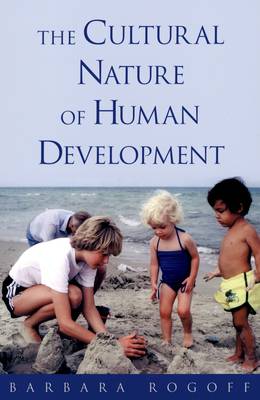
- Afhalen na 1 uur in een winkel met voorraad
- Gratis thuislevering in België vanaf € 30
- Ruim aanbod met 7 miljoen producten
- Afhalen na 1 uur in een winkel met voorraad
- Gratis thuislevering in België vanaf € 30
- Ruim aanbod met 7 miljoen producten
Zoeken
Omschrijving
Three-year-old Kwara'ae children in Oceania act as caregivers of their younger siblings, but in the UK, it is an offense to leave a child under age 14 ears without adult supervision. In the Efe community in Zaire, infants routinely use machetes with safety and some skill, although U.S. middle-class adults often do not trust young children with knives. What explains these marked differences in the capabilities of these children?
Until recently, traditional understandings of human development held that a child's development is universal and that children have characteristics and skills that develop independently of cultural processes. Barbara Rogoff argues, however, that human development must be understood as a cultural process, not simply a biological or psychological one. Individuals develop as members of a community, and their development can only be fully understood by examining the practices and circumstances of their communities.
Until recently, traditional understandings of human development held that a child's development is universal and that children have characteristics and skills that develop independently of cultural processes. Barbara Rogoff argues, however, that human development must be understood as a cultural process, not simply a biological or psychological one. Individuals develop as members of a community, and their development can only be fully understood by examining the practices and circumstances of their communities.
Specificaties
Betrokkenen
- Auteur(s):
- Uitgeverij:
Inhoud
- Aantal bladzijden:
- 448
- Taal:
- Engels
Eigenschappen
- Productcode (EAN):
- 9780195131338
- Verschijningsdatum:
- 13/02/2003
- Uitvoering:
- Hardcover
- Formaat:
- Genaaid
- Afmetingen:
- 165 mm x 239 mm
- Gewicht:
- 762 g

Alleen bij Standaard Boekhandel
+ 102 punten op je klantenkaart van Standaard Boekhandel
Beoordelingen
We publiceren alleen reviews die voldoen aan de voorwaarden voor reviews. Bekijk onze voorwaarden voor reviews.











